

A は B です。
In English, be verb should be changed according to the subject. But in Japanese, there is no variant of ~は~です。
So simply you can explain A=B, using AはBです。
“は” is a topic marker that is added after the topic word.
Topics or subjects are most omitted in Japanese sentences when it is obvious from the context.
“は” is pronounced “wa” in this case.
“~” means wildcard. This part contains one or more words.
“。” is “.”(period).

です is a polite expression of だ.
So you can say this sentence AはBだ.
I am Satoshi.
私 [pronoun] I
He is a student.
彼 [pronoun] he
学生 [noun] student
In Japanese, in many cases, we don’t distinguish singular or plural.
Only when we dare to emphasize the plural, we can add たち, ら or something(depends on the target) after the word. For example, “they” is 彼ら, “students” is 学生たち e.t.c.
She is an American.
彼女 [pronoun] She
アメリカ人 [noun] American
Mr Satoshi is a Pokémon trainer.
~さん [suffix] Mr./Ms.
です can be replaced with だ(impolite) or である(story style).
If you emphasize the subject, は should be replaced with が. But you should not use が when the complement is not obvious from the previous context.
炭次郎といいます。
©吾峠呼世晴/集英社・アニプレックス・ufotable
I am Tanjiro.
In Japanese, in the case the subject is obvious from the situation or previous context, the subject is almost omitted. It is unnatural not to omit the subject.
~といます [compound] (I) say (my name is) ~
~と申します [compound] (I) say (my name is) ~ *more polite style
In the case of self-introduction, there are some more formal expressions like below. Of cause ~は~です is no problem, it is simple and not rude. The grammatical explanation is a little complicated, so I will omit it here.
| Japanese | Pronunciation | English | Note |
|---|---|---|---|
| 私 | watashi | I | 95% omitted |
| あなた | anata | you | 65% omitted and 30% one’s name to talk with is used instead |
| 彼 | kare | he | also means boyfriend |
| 彼女 | kanojo | she | also means girlfriend |
| これ | kore | this | pointing to something close to you |
| それ | sore | it | pointing to something close to the person you are talking to |
| あれ | are | that | pointing to something far away |
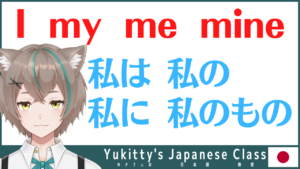



| Japanese | Pronunciation | English |
|---|---|---|
| 学生 | gakusei | student |
| 先生 | sensei | teacher, instructor, professor, doctor |
| 医者 | isha | doctor, physician |
| 弁護士 | bengoshi | lawyer, counsel |
| 警察官 | keisatsukan | policeman, police officer |
| 店員 | teein | clerk, salesperson |
| 会社員 | kaishain | office worker, company employee |
| エンジニア | enjinia | engineer |
| 運転手 | untenshu | driver, operator, chauffeur |
| 料理人 | ryoorinin | cook, chef |
| 歌手 | kashu | singer, vocalist |
| Japanese | Pronunciation | English | Note |
|---|---|---|---|
| ~さん | ~san | Mr./Ms. | polite |
| ~様 | ~sama | Mr./Ms. | more polite (often used in the business scene) |
| ~先生 | ~sensee | prof./doc. | used for teacher, professor, doctor and author |
| ~人 | ~jin | people | ex. アメリカ人 is American (people) |
| ~人 | ~nin | people | a number of peaple |
| ~歳 | ~sai | years old | – |
| ~才 | ~sai | years old | a simplified version of Kanji |
| ~年生 | ~nensee | grader | ex. 1年生 is a first grader |
Translate the following sentences into Japanese using the “AはBです。”.
Ms.Kasumi is a police officer.
Ms Kasumi is a police officer.
かすみさんは警察官です。
I am 25 years old.
I am 25 years old.
私は25歳です。
*If it is obvious from the context or situation, “私は” should be omitted.
彼女はかわいいです。
She is cute.
かわいい [I-adjective] cute, pretty, lovely, adorable
You have understood “A” can replace the subject of the sentence and “B” can replace the object of the sentence.
So “B” can replace not only nouns but I-adjective or Na-adjective.



です can be omitted in I-adjective sentences.
だ can be used instead of です in Na-adjective sentences.
Takeshi is big.
大きい [I-adjective] large, generous, hefty
Add ”です” to the end of the sentence for a more polite expression. (たけしは大きいです。)
Haruka is cheerful.
元気な [Na-adjective] cheerful, spry, vigorous, active, energetic
If the Na-adjective is at the end of the sentence, “な” should be transformed into “だ” or “です” at the end.
“です” is a more polite expression than “だ”. (はるかは元気です。)
| Japanese | Pronunciation | English | word class |
|---|---|---|---|
| かわいい | kawaii | cute, pretty, lovely, adorable | I-adjective |
| 大きい | ookii | large, big | I-adjective |
| 元気な | genkina | cheerful, spry, vigorous, active, energetic | Na-adjective |
| 親切な | sinsetsuna | kind, gracious, accommodating | Na-adjective |
Click here for a detailed explanation of adjectives. [Under construction]
Translate the following sentences into Japanese using the “AはBです。”.
Hikari is kind.
Hikari is kind.
ひかりは親切です。
Takeshi is big.
Takeshi is big.
たけしは大きいです。
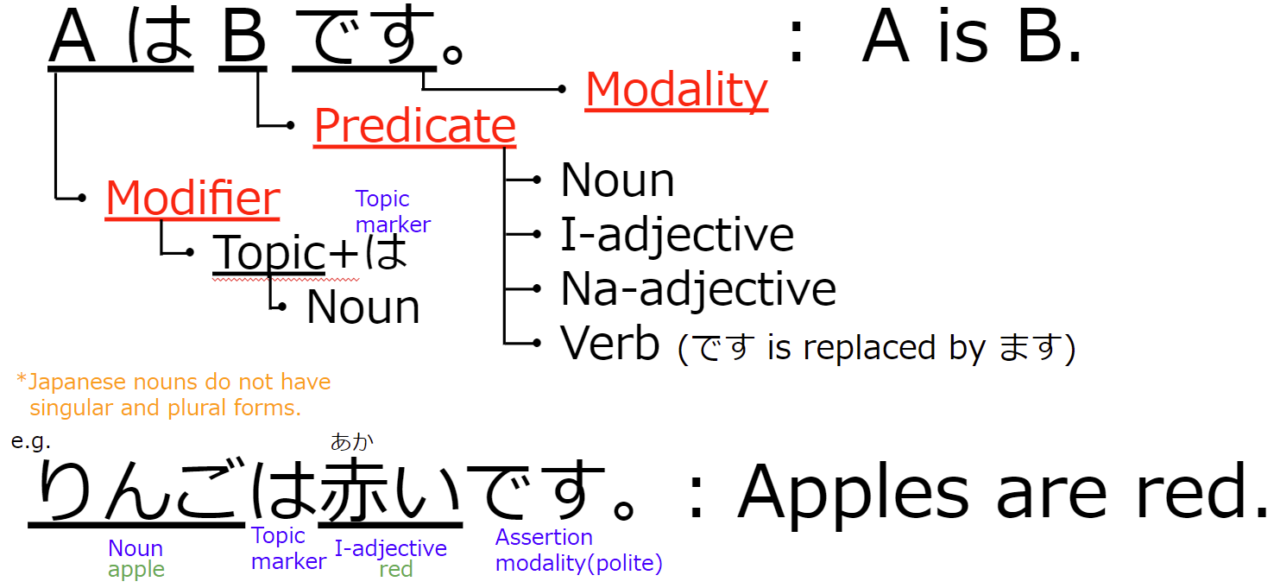

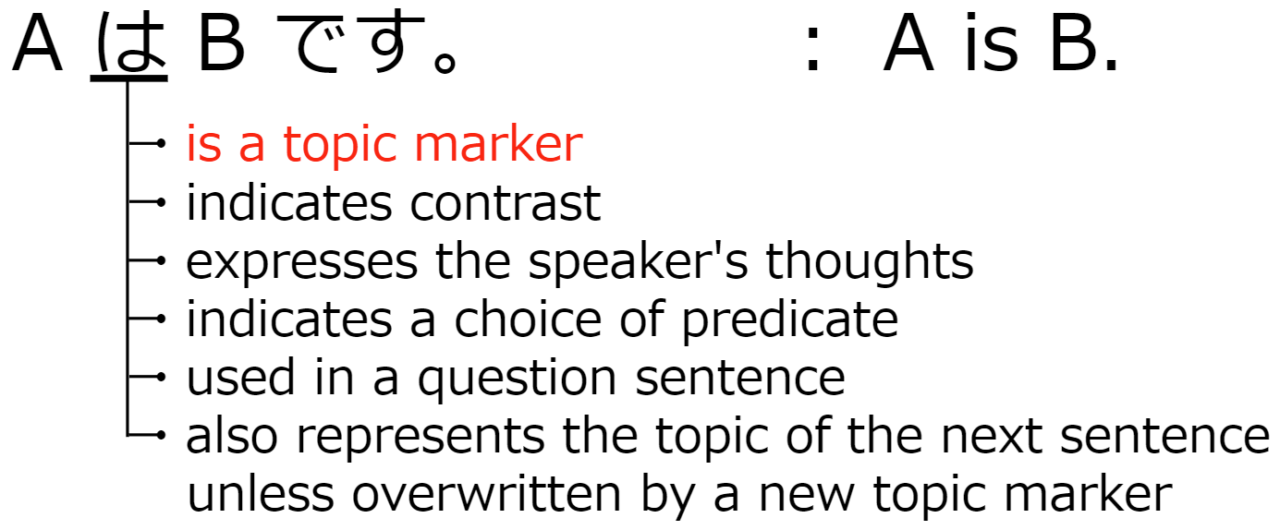

・is a topic marker
e.g. Self-introduction
ゆきてぃです。
I am Yukitty.
In Japanese, modifiers are omitted as much as possible when they are obvious from the context or situation.
私は(I) is omitted. If not daringly omitted, it is emphasized.
・indicates contrast
・expresses the speaker’s thoughts
・indicates a choice of predicate


・used in a question sentence


・also represents the topic of the next sentence unless overwritten by a new topic marker


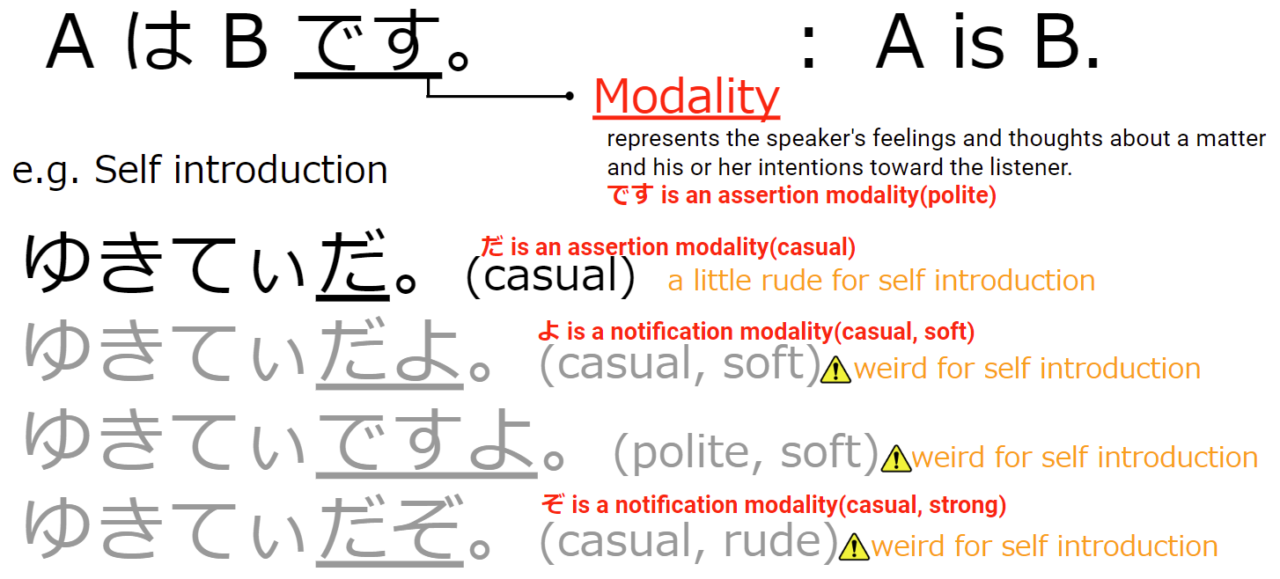

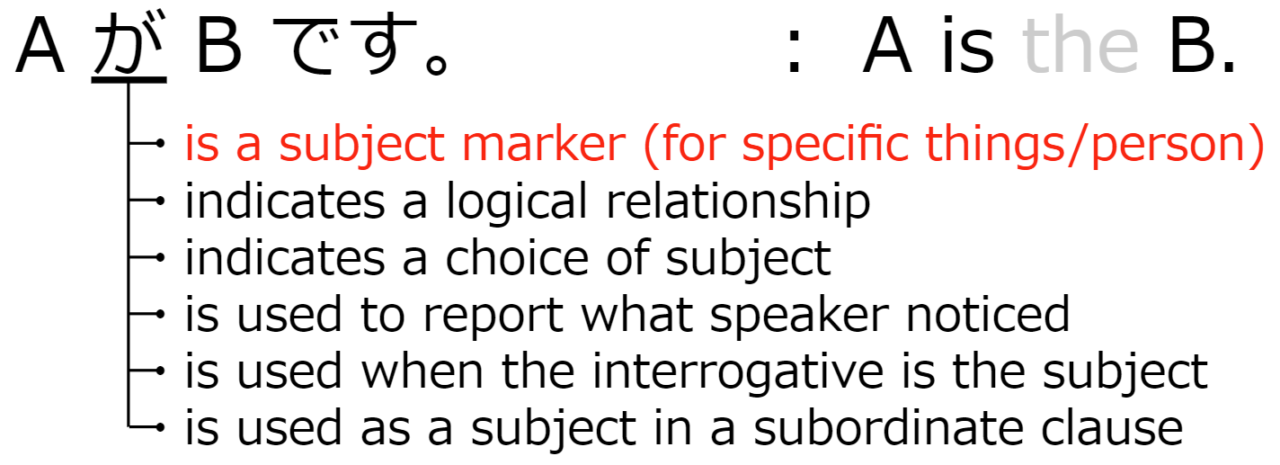

・is a subject marker (for specific things/person)
・indicates a logical relationship
・indicates a choice of subject


・is used to report what the speaker noticed


・is used when the interrogative is the subject


・is used as a subject in a sub-sentence clause




この記事が気に入ったら
フォローしてね!
Comment